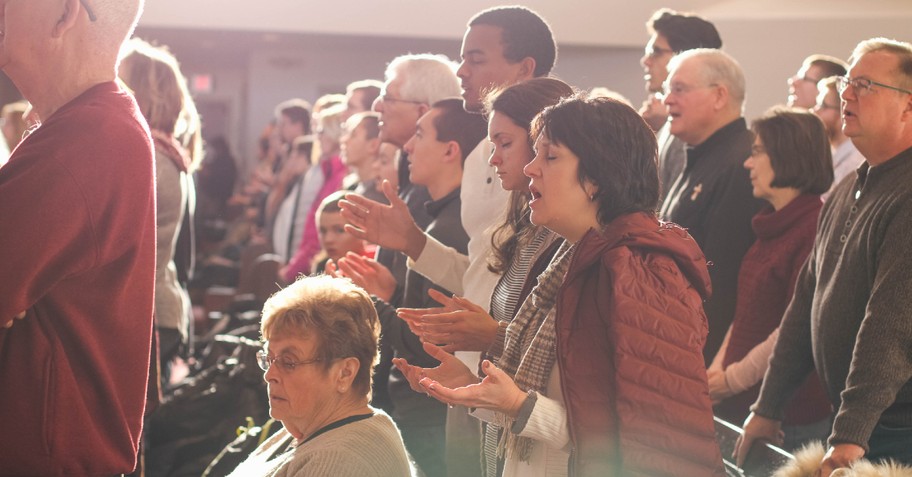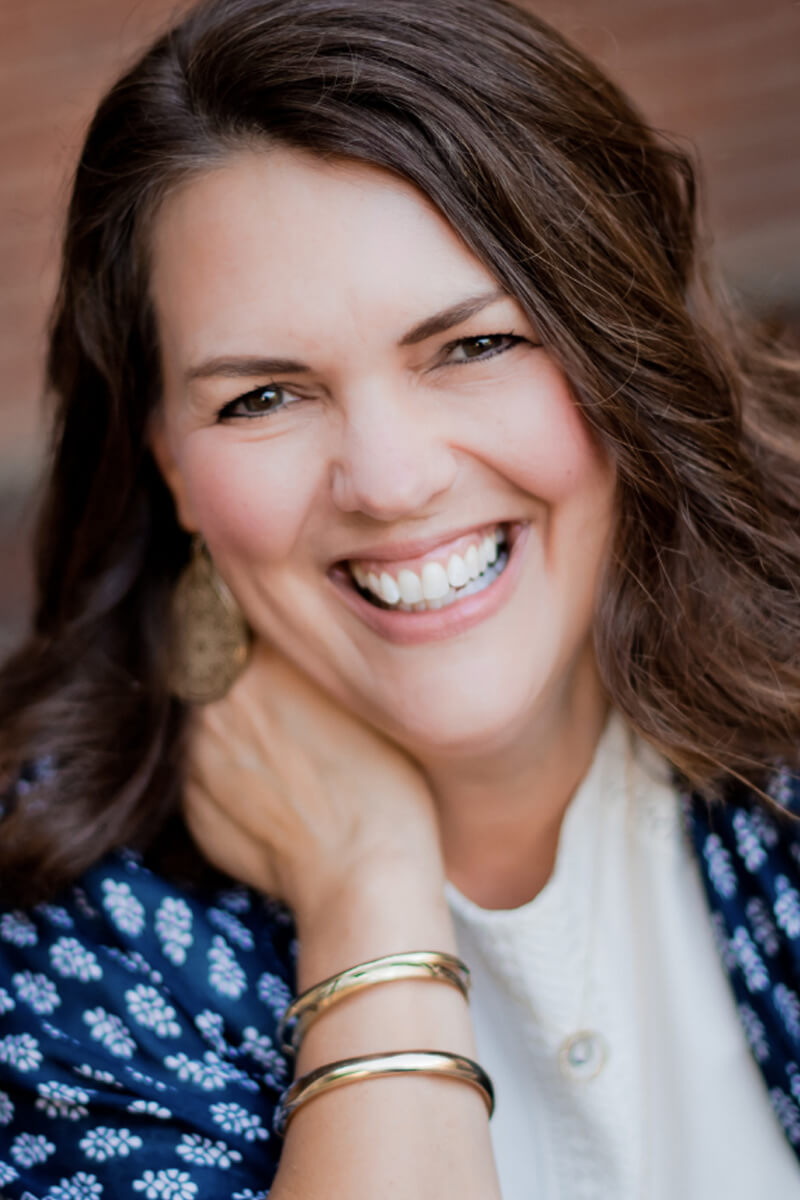Marriage Mentors Could Be Just What Your Marriage Is Missing

Around the 5-year mark in our marriage, my husband and I went through several years without any mentorship as individuals or as a couple.
Those were not good years. We lacked perspective, wisdom, and hope.
We acutely felt the absence of a place to vent and wrestle over life decisions with someone who wasn’t personally affected by our choices. We lacked a sounding board for our parenting decisions and our irritations with one another.
We floated through these few years of a married-with-kids-life without loving it or finding purpose in what we were doing.
After a few moves and a few job changes, we began looking for a new church. We visited several fellowships comprised of couples who looked a lot like us, with kids our kids’ ages and houses in similar neighborhoods.
Instead, we chose a church body diverse in age, race, and economic status. We saw couples there from many generations. We decided this place would become our home.
We needed it, and it needed us. We would find people there to watch, follow, and guide us. We could find the mentors we needed.
We did. Many people have poured into our individual lives and into our marriage in the 20 years since we’ve been in our church.
We hadn’t even realized how much we needed mentoring until we witnessed the growth happening in us.
Mentoring had changed us.
Photo Credit: ©GettyImages/shironosov

The Power of Mentorship
Mentorship is not a new concept for personal growth. Many of us seek mentors, coaches, therapists, counselors, and advisors to guide us in various aspects of our lives (business, finance, emotional health, nutrition, personal and spiritual growth, and creativity).
We often read books and allocate time to meet with people we admire, all the while taking notes and implementing the advice given.
Yet when it comes to marriage, we often don’t invest at the same level of commitment as we do for our individual development. After hurried premarital counseling and an occasional marriage retreat or book study, most married couples assume they have done the necessary preparations for building strong and fulfilling marriages.
They vent to their friends during the rough patches and see a marriage counselor if things get out of hand. But they rarely look for a couple ahead of them in life with whom they are willing to be regularly vulnerable and accountable (James 5:16)
A marriage mentorship is a must-have for all marriages. Marriage mentorship will develop and direct your marriage down a path of success and blessing.
What Is a Marriage Mentor?
What is a marriage mentor? A marriage mentoring relationship is a married couple who’s ahead of you in their stage of life, who has a successful Christian marriage, and who speaks honestly and compassionately to you about your marriage and life.
Marriage mentors are trustworthy and confidential. They desire to invest in you.
Most importantly, they love and obey Scripture.
Rather than letting culture inform their beliefs, they understand culture through the lens of God’s truth. Consequently, they understand the trials assaulting you, and they know how and why to help you. (Titus 2:1-9)
Photo Credit: ©Pexels/Leah Kelley

What Does a Marriage Mentor Do?
Marriage mentors are friends and guides. While any older couple can share stories about all the nights one of them slept on the couch, a mentor guides you through how and why you fight and how to prevent couch-sleeping altogether.
Mentors provide the wisdom you lack because they have experienced hardships or circumstances yet unknown to you.
A marriage mentoring relationship gleans God’s truth from their own circumstances and shares their wisdom with you. (Exodus 18:5-26)
Mentors should provide the following:
1. Listen without judging or condemning
2. Help you recognize your part in any situation
3. Offer other perspectives
4. Make suggestions
5. Pray with you
6. Encourage you to do the right thing
7. Affirm your value in Christ
8. Confront you when you’re ignoring a problem in your life
Why Are Marriage Mentors Necessary?
With fractured families becoming the norm in our culture, many children grow up without seeing a healthy, loving in-tact marriage at work. Marriage mentors can fill this need.
Children grow up with the model of love and marriage that they witness on television and film, in the tabloids, and in their own homes.
Many kids—and therefore young adults—lack healthy role models of husbands and wives getting along and serving God together.
Young married couples may determine to not do things like their parents did, but without godly role models to guide them along a different trajectory, logic dictates that children repeat what feels natural and normal, even as adults, and even if they don’t want to.
Marriage mentors are necessary because they:
1. Are important role models, especially for couples without family role models to follow
2. Provide wisdom for couples confused or searching for direction
3. Have experience and perspective that younger couples don’t yet have
4. Give warning about dangerous habits or lifestyles they see forming in your family
5. Pray for you and hear from God on your behalf
6. Are unrelated and unaffected by your choices and decisions; this gives them objective perspective, like a counselor
Photo Credit: ©Unsplash/Joshua Ness

How to Find a Marriage Mentor
You can find marriage mentors within your family, acquaintances, or church family.
You might know them well already, or you might not know them personally at all yet. Your previous interactions don’t matter. What’s important in finding a marriage mentor is looking for a couple of integrity, faith, and compassion who’s willing to invest in your life.
Observe people and ask friends whom they would trust to give them advice.
Here are some things that you might want your marriage mentors to have or be:
1. Strong Christian faith and knowledge of the Bible’s truths
2. A ministry of service at a church
3. Evident joy and happiness with one another’s company
4. Respect and honor for one another: they don’t criticize, demean, mock, ignore, or dismiss one another’s opinion or presence
5. Family harmony and peace; their children (if they have kids) are generally obedient and respectful to them
6. Interpersonal wisdom; they treat their children, friends, and employees with love, patience, and kindness, even when those people are difficult
7. A good reputation among acquaintances and friends
8. A work ethic of integrity, honesty, and diligence
9. Compassionate and empathetic listeners, self-controlled, and not easily influenced
10. Fun; you enjoy your time together; you have similar interests or desires; you “get” each other
How to Ask a Couple to Become Your Marriage Mentors
If you and your spouse have determined that you want to be mentored in your marriage, first pray about whom God would have influence you.
Begin to notice families or couples in your church or in your circle of relationships who glorify God in their marriages. Watch for honesty, integrity, and authenticity.
Many couples, especially Christian couples, work at presenting a “perfect-couple” front. These will not make good mentors. Mentorship requires humility as well as experience. You need an authentic example to follow, a couple who’s willing to share their struggles and admit their mistakes.
Wisdom comes through failure and discipleship, not through doing everything right. (Proverbs 1:5-7)
Second, take your top choice to dinner and notice if you have a natural rapport with them. Ask them about their personal discipleship and about how they’ve built a strong marriage.
If they’re passing your test with flying colors, ask them if they’d be willing to mentor you in your marriage. Give them time to pray about it.
Often in these situations, God has already been speaking to the mentor couple about you, so don’t be surprised if they ask you first or accept your request on the spot!
Third, discuss a relational yet intentional approach to building an atmosphere of accountability and discipleship with your mentors.
A good rule of thumb for a couple who’s not in marital crisis is to establish monthly meetings. For example, the husbands and wives could meet separately once per month; then all four of you could go to dinner together once a month or perhaps quarterly to catch up and share the changes that are taking place in your marriage.
As your relationship grows closer, you might plan a short getaway or other fun, relational activities.
However, a couple who’s in marital crisis should meet with a professional counselor until they have begun practicing healthy marital habits before asking marriage mentors to enter into an accountability relationship.
Photo Credit: ©Unsplash/Ben White

Marriage Mentors Are Not Marriage Counselors
They are friends to guide you through your next life stage. If you dump a failing marriage on a new mentoring relationship, your mentors will likely tap out. Saving your marriage is not their role. (Proverbs 11:14)
Depending on the rapport you build, mentoring relationships range from close friendships to formal interactions.
Both are beneficial to you.
Sometimes, it takes the pressure off a mentoring relationship if you all agree to try mentorship for six months and review your arrangement after that point. Then you both have a way out if you find the relationship is awkward or unhelpful.
Although a mentor couple might be initially intimidated and overwhelmed by your request, asking them to mentor you might actually affirm a calling from God.
We are all responsible for one another. Asking someone to mentor you in your marriage simply fulfills God’s commands for us to love one another and act as the body of Christ.
By not counseling and encouragement one another, we hurt the success of the church as a whole.
Don’t be shy about asking someone to guide you. If they are godly followers of Christ, they will pray about it and hear a definite “yes” or “no” from God. If they say “no,” simply ask someone else.
How to Talk to Marriage Mentors
Begin your first session by sharing what you and your spouse hope to gain from the couple’s mentorship. You might just want a safety-net ready in case something traumatic or difficult occurs in your marriage.
If that’s the case, begin your relationship by asking your mentors to tell their story. Begin a friendship. (1 Thessalonians 5:11)
If, however, you enter the mentorship with irritations and difficulties already simmering, begin by describing your struggles and your confusion over how to solve them
Remember, marriage mentorships are safe places to share. If you hide how you feel or act, you will not receive the direction and assistance you desperately need.
The right mentor will affirm you as you share even your deepest pain.
Often, we do not feel the liberty to share our darkest secrets with friends and family because we are too worried about how they will view us or if their opinions or love for us will change once they hear our secrets.
Mentorship provides a security that many other important relationships do not provide, particularly early in the arrangement. You will be surprised at how easy and how liberating it is to share your fears with a non-partisan Christian mentor.
The relationship is never in jeopardy because its sole purpose is sharing and direction.
If you’re not sure what to talk about, here are some suggestions:
1. Personal growth issues, like relational problems, communication, friendships, etc.
2. Habits, addictions, or dysfunctional behavior in your life
3. Your family background and how it affects your marriage
4. Your fears, phobias, dreams, and disappointments
5. Communication with your spouse; how and why you fight
6. Raising children
7. Decision-making
8. Spiritual growth and discipleship
9. Serving in the church with and without your spouse
10. Ongoing problems and discussions in your marriage
Photo Credit: ©Unsplash/Jack Sharp

How Marriage Mentorship Changes Everything
Once you’ve experienced the value of having a marriage mentor, you will start telling other people to do the same.
You will notice young couples and offer yourself as a marriage mentor. You will start mentoring ministries in your church. You will tell other people to be accountable to someone who’s ahead of them in life.
We have had many mentors throughout our married life, but our favorite is a married couple who mentored us shortly after we joined our church twenty years ago.
We had a few conversations with them about life and decided “This is the couple we’ve been looking for.” We opened up our marriage, our personal failings, our family, our everything.
They invested in us individually, in our marriage, and in our kids. We ate together, laughed together, cried together.
Several years ago, they moved out of state. We were devastated. Since that time, we have prioritized staying in touch by phone, email, and in person.
We have vacationed together. We’ve driven long distances just to meet for dinner.
We love them deeply; our hearts are continually full of gratefulness and shared experience.
They are one of the best decisions we’ve ever made.
Sue Schlesman is a Christian author, high school English teacher, pastor’s wife, and event speaker. She has a BA in Creative Writing and a Master’s in Theology & Culture. Her second book Soulspeak: Praying change into unexpected places released in August of 2019. Sue’s material appears in a variety of print, online, radio, and podcast mediums. She has a passion for missions, social justice, traveling, reading, and the local church (where she and her husband started a thriving marriage mentorship ministry). Sue has been married to Shane for 30 years, and they have 3 adult sons. You can find her writing about life, education, family, and Jesus at sueschlesman.com.
Photo Credit: © Unsplash/Sarah Noltner
Originally published September 01, 2022.






